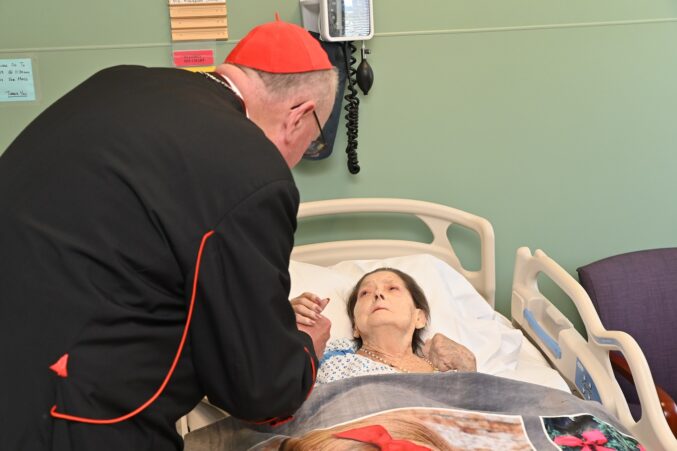The Catholic Bishops of England and Wales have warned that the future of Catholic care homes and hospices is in doubt if the assisted suicide legislation currently before parliament is passed because they may be forced to comply with its provisions, thereby totally violating their own ethos.
The warning came following the recent passage of the End of Life Bill by the House of Commons.
The Bill provides no protections for institutional conscience. An amendment to the Bill, which would have explicitly allowed institutions to not be involved with assisted suicide, was rejected at the report stage. Faith-based hospices may be compelled to participate in practices that directly contradict their founding mission: to care, not to kill. If they refuse, they could face defunding, reputational damage, or closure.
In its evidence to the Bill Committee, St. Gemma’s hospice in Leeds stated: “If compliance with assisted dying provision becomes a condition for NHS funding, institutions like St. Gemma’s may have no alternative but to cease operations entirely”.
The Catholic Bishops also highlighted another consequence of the Bill: the erosion of public trust. “The widespread support which hospices attract from local communities will also be undermined by these demands which, in many cases, will require these institutions to act contrary to their traditional and principled foundations”, they said in their statement.
Religious institutions risk losing not only funding, but also the moral credibility that sustains them. Their fears are already becoming reality overseas and now, perhaps soon, in England.
The most illustrative case comes from British Columbia, Canada. The Irene Thomas Hospice in Delta refused to allow euthanasia on its premises, in line with its pro-life ethos. In response, the provincial government withdrew $1.5 million in annual funding, the equivalent of 94pc of the hospice’s budget. Unable to continue, the hospice was shut down, and the province seized the facility, despite $15 million in privately donated assets raised by the local community. The forced closure became a chilling symbol of what can happen when religious conscience collides with state-endorsed euthanasia policies.
This is not an isolated case. Other religious institutions across Canada have faced similar pressures. St. Paul’s Hospital in Vancouver, a Catholic institution, was forced to host a euthanasia unit on its campus, despite objections from leadership and staff.
In Quebec, medical authorities now mandate that every palliative care unit, regardless of religious or ethical affiliation, provide euthanasia services.
The UK now risks walking the same path.
Although the Bill has passed the House of Commons, it must now undergo scrutiny and possible amendment in the House of Lords before receiving Royal Assent.
The Bill represents not merely a dramatic shift in end-of-life care policy, and for this reason alone it should be rejected, but it is also a potential erasure of pluralism in healthcare. Unless new legal safeguards are introduced, institutions rooted in conscience may disappear, replaced by a one-size-fits-all model that leaves no room for dissent.
What happened in Canada could soon happen in the UK.
















